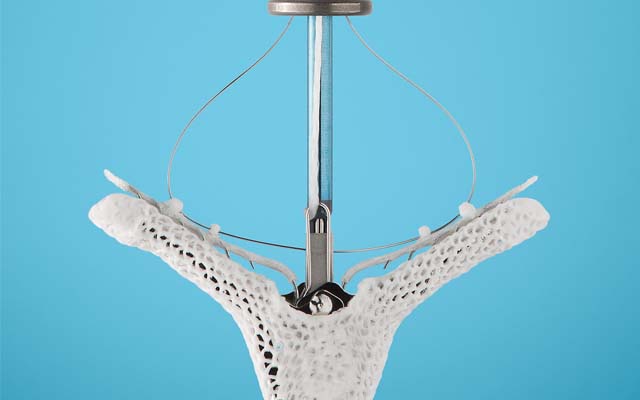
In draft recommendations, England’s National Institute for Health and Care Excellence (NICE) gives the go-ahead for percutaneous edge-to-edge repair (MitraClip, Abbott) for mitral regurgitation patients who are unable to undergo heart surgery because of a high risk of complications. However, the draft guidance states that the procedure should only be performed at an experienced teams of clinicians working in specialist centres. Data on the outcomes must also be collected and carefully analysed.
Kevin Harris, programme director and clinical advisor for the Interventional Procedures Programme at NICE, says: “This innovative procedure can reduce the symptoms of heart failure and improve quality of life. The latest evidence was reviewed by a NICE committee, which concluded that the procedure worked well enough and was safe enough to be offered to those too old or too sick to have their mitral valve repaired through open heart surgery. The procedure has the potential to improve their symptoms and to extend their lives”
If the draft recommendations are implemented, percutaneous mitral valve leaflet repair for mitral regurgitation will only be allowed to take place at specialist centres with access to both cardiac and vascular surgical support in case emergency treatment of complications is needed. Only clinicians with specialist training and supervision by an experienced mentor for at least the first 20 procedures will be allowed to carry out the procedure.
Dan Blackman, honorary secretary of the British Cardiovascular Intervention Society, said: “This NICE guidance will be warmly welcomed by patients and specialists. Mitral regurgitation causes breathlessness, hospitalisation and reduces life expectancy. Unfortunately, many patients are not fit enough to undergo open-heart surgery, and until now these patients have had no effective alternative treatment. Percutaneous mitral valve leaflet repair represents an excellent option for this patient group. Recent data have shown this technique offers major benefits in symptom relief, improved quality of life, and reduced hospitalisation.”
The draft guidance comes after the results of the COAPT study were published. These showed that the use of MitraClip is associated with a significant reduction in rate of heart failure hospitalisations at two years in patients with secondary mitral regurgitation.











